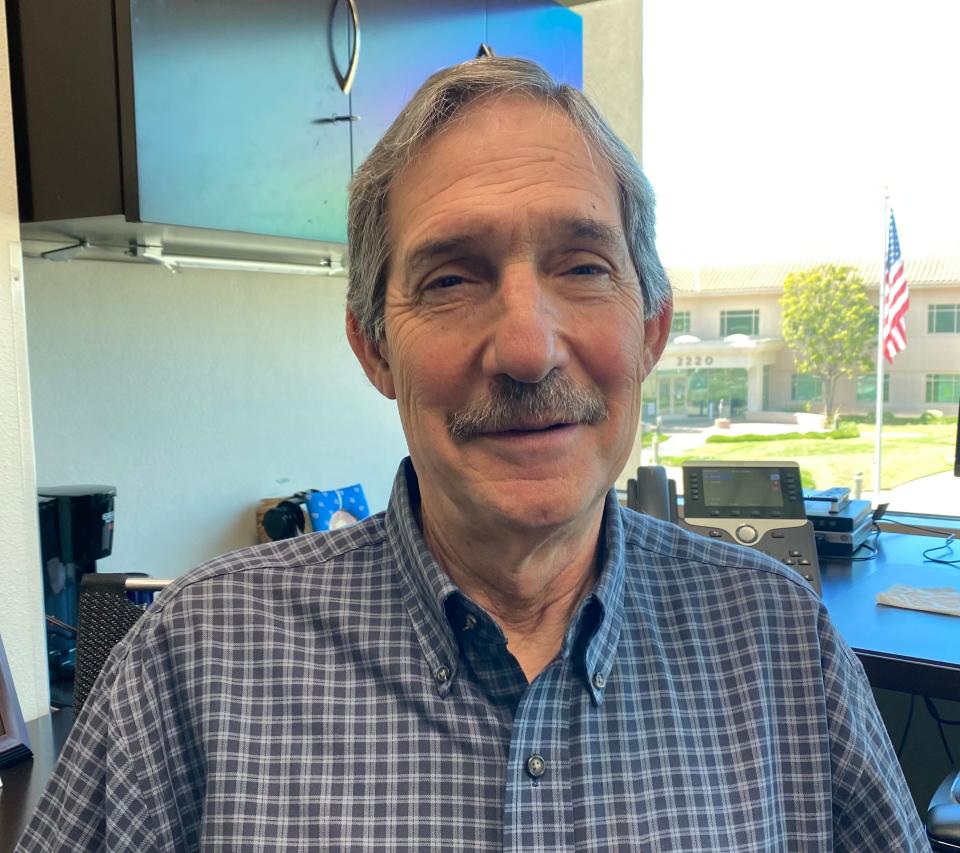What if a nuclear bomb hits? Ventura County officials encourage preparedness
Editor's note: This story was originally published in April. We are republishing it as we look back at some of our most-read stories of the year.
Ventura County public health leaders made national waves with a first-of-its kind campaign 10 years ago on what to do if a nuclear bomb exploded in Los Angeles, unleashing radioactive fallout and 2 million fleeing people.
The campaign, funded with more than $600,000 from federal agencies, brought town hall meetings, educational videos and a slogan: “Get Inside. Stay Inside. Stay Tuned."
The goal was to lock the phrase into people’s brains in the atomic version of “stop, drop and roll,” said Ventura County Public Health Officer Dr. Robert Levin. He spearheaded the campaign, billed as the first since the Cold War, and earlier helped lead efforts to produce an equally rare document — a 243-page county preparedness plan for nuclear detonations.
The "get inside" punchline, also used by the Federal Emergency Management Agency, never gained traction locally. Levin blames himself, saying there wasn’t enough follow-up. Now, he and other county emergency leaders are trying to hammer home the phrase and the readiness message again.
As part of a monthlong campaign on hazardous materials, the Ventura County Sheriff’s Office of Emergency Services in April released the same post one time on Twitter, Instagram and Facebook, detailing where to go in a radiation emergency. No other posts are planned.
Levin views the post, and the focus on radiation readiness, as a reminder to the public of the need to be prepared.
The post told people that in case of a radiation emergency they should not flee but go immediately to a basement or the middle of a building, as far away from windows and roofs as possible.
Turn off fans or air conditioners, the post advised. Bring pets inside. And use a radio, TV or the internet to learn how long to stay inside.
“It’s been out all morning and the world hasn’t ended,” Levin said in an interview, responding to criticism nuclear detonation preparedness is wasted effort that does little except stir public panic. He asserted the advice could save tens of thousands of lives in the "highly unlikely" possibility of an attack.
State mask mandate ends, some local hospitals keep many rules in place
The mortality rate within a half mile of the explosion could be very high depending on the kind of attack but would improve farther out with damage relatively light and highly survivable less than 3 miles from detonation, said Brooke Buddemeier, a Lawrence Livermore National Laboratory health physicist who focuses on nuclear terrorism and response planning.
Heavy fallout could extend 10 to 20 miles from the blast. Some of the people who would flee to Ventura County would be contaminated but people could still let them in their homes without severe risk, Buddemeier said.
“You should never deny someone shelter. Being contaminated is not like an infectious disease” he said, adding risks would be reduced if exposed people remove outer clothing and brush particles off exposed skin.
The county's campaign 10 years ago focused on the possibility of a terrorist attack in Los Angeles involving an improvised nuclear device that would kill as many 45,000 people, spewing fallout and clogging freeways with 1 million additional cars.

There are many other scenarios including nuclear-armed ballistic missiles from North Korea, China, Russia or elsewhere.
The "get inside" mantra may not always be the best advice, said Edward Geist, a RAND Corp. researcher who studies Russia, civil defense and nuclear weapons. He praised preparedness efforts but said some may be too narrowly focused.
“It’s really hard to come up with pithy advice for people that can deal with all of these contingencies,” he said.
Some observers cited the false alert blasted out in Hawaii in 2018, telling people a ballistic missile was headed their way. The resulting panic showed that people didn’t know the “get inside” message, said Jessica Wieder, a deputy director of communications at the Federal Emergency Management Agency.
“People didn't know what to do,” Wieder said, praising Ventura County’s efforts. “If it gets people to get water, have radios at home or work and make a plan for how to communicate with their family, that is added value for any kind of emergency.”
Others cited a New York City public service announcement in July on what to do in case of a nuclear attack. It ignited alarm with people wondering if the warnings were triggered by some unannounced threat. City officials said they were not.
Levin called the chance of a nuclear detonation "vanishingly small but possible." He said he thinks the "get inside" message needs to be promoted regularly. He said his only motives are to provide people information that could protect them and to spur other cities and counties to do the same.
“I don’t mind getting criticized by detractors as long as they get inside, stay inside and stay tuned,” he said.
Editor's note: The Ventura County Sheriff’s Office of Emergency Services released the same post on radiation emergencies one time on Twitter, Instagram and Facebook. The original story cited a series of posts.
Tom Kisken covers health care and other news for the Ventura County Star. Reach him at tom.kisken@vcstar.com or 805-437-0255.
SUPPORT LOCAL JOURNALISM: To see more stories like this, subscribe here.
This article originally appeared on Ventura County Star: What if a nuclear bomb detonates? County officials push preparedness

